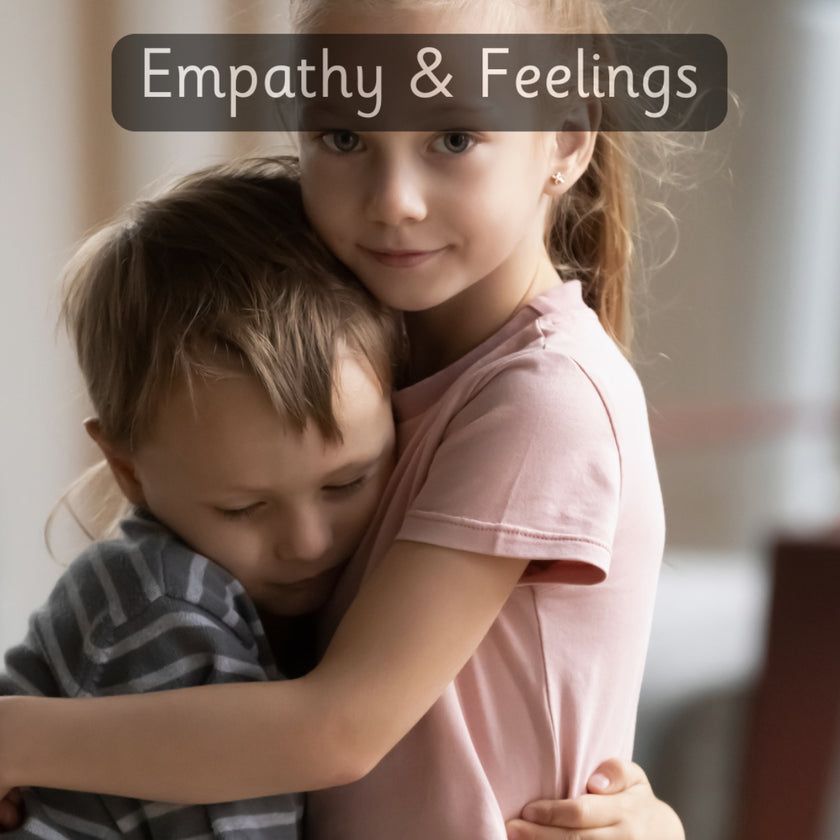Nurturing Empathy in Children: The Role of Toys in Emotional Development

As caregivers, we all want to raise compassionate and empathetic children. A key tool in fostering these traits is the toys we choose for them. Toys for the development of feelings and empathy are designed to help children understand and express emotions, nurture relationships, and learn to care for others. Let's explore how these toys can make a difference in your child's emotional growth and which ones are most suitable for various age groups.
Can empathy be developed at an early stage?
Yes, empathy can be developed at an early stage using toys. Toys can be powerful tools for fostering empathy in children. Here are several ways this can be achieved:
- Role-Playing Toys
- Storytelling Toys
- Cooperative Play
- Emotion-Recognition Toys
- Interactive Digital Toys
- Books and Toys Combo
- Social Skills Toys
Starting Early: 9 Months and Up
For the youngest children, simple dolls and imaginary animal characters are ideal. These toys, without removable components, allow your little ones to begin exploring their interactions with others. They will start to recognize different characters, initiating a foundation for empathy.
Two Years and Beyond: Expanding Emotional Horizons
As your child grows, their toys can become more complex to match their developing understanding of the world. Lightweight dressed dolls and those that can be dressed and undressed help children practice nurturing behaviors. These dolls often come with accessories like bottles and blankets, encouraging pretend play that imitates familiar caregiving activities.
Toy tableware, pots, and feeding accessories for dolls also play a significant role. These items help children understand daily routines and the importance of caring for others. Simple role-playing toys, such as home appliances, further enhance their empathy by allowing them to engage in pretend household tasks.
Three Years Old: Deepening Emotional Connections
At around three years of age, children can handle more intricate playsets and activities. Functioning strollers, cribs, and furniture for dolls that imitate real versions allow kids to care for their "babies" more realistically. This not only nurtures empathy but also teaches responsibility.
Articulated figures with limited accessories and miniatures of simple characters, such as animals or superheroes, provide an avenue for imaginative play. Children create stories and scenarios that involve helping and protecting others, reinforcing empathy and compassion.
Enhancing Role Play: Costumes and Disguises
Costumes and dress-up clothing become highly engaging for children around the age of two and three. Simple costumes without fasteners and basic dress-up materials, like hats and shoes, encourage kids to step into different roles and empathize with various characters. As they grow older, more complex costumes imitating characters from legends and tales can deepen this role-playing experience.
Imitating Real Life: Play Sets and Accessories
Play sets imitating urban and rural areas, such as stores, schools, and hospitals, are excellent for older children. These toys allow them to reenact real-life scenarios, understand different professions, and see the importance of various roles in society. Doll houses with multiple rooms and accessories further enhance this imaginative play, making children feel responsible for their miniature families.
The Power of Books and Themes
Books with special features like pop-ups and hidden pictures are wonderful tools for developing empathy. They engage children with interactive storytelling, making them more relatable and emotionally impactful. Themed mats for play, designed with town and street layouts, encourage cooperative play and understanding of community dynamics.
Conclusion
The journey to raising empathetic and caring children can be wonderfully supported by the right toys. From simple dolls and dress-up costumes to intricate play sets and themed mats, each toy plays a unique role in nurturing your child's emotional development. By carefully selecting toys that encourage empathy and emotional growth, you are setting the foundation for a compassionate and understanding future generation.



 DimpleBee.
DimpleBee.